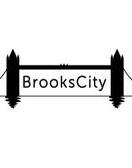When you're busy running your business, it can be difficult trying to keep track of what limited company expenses you can claim for tax relief. And this could lead to the company paying too much tax! We don't want that.
So we've created a guide for you and other limited companies where we explain common allowable business expenses that you can claim tax relief on.
Please note: Even if you are the only director of a limited company, you and your company are considered separate legal entities. So if we say that 'the company' can claim tax relief that means it goes in your company's accounts.
If we say that 'you' can claim tax relief that means it goes on your own personal tax return. If we say 'you can claim from the company', that means the company can pay you back for costs that you incur personally without either of you paying more tax. These costs are usually allowable for tax relief in the company's accounts.
When we say that something is a 'taxable benefit', it means that even if the company can claim tax relief on the cost by putting it in its accounts, the company and/or the employee may have some additional tax and/or National Insurance to pay on the cost of the item
What are allowable business expenses?
The number one rule to bear in mind for claiming business expenses is that you can only reclaim expenses that have been incurred wholly, exclusively and necessarily while running your limited company.
Furthermore, you can't reclaim expenses which have both a personal and business use at the same time. It is advisable to keep all your receipts and invoices in case of an audit where you may need to prove your claims are justifiable.
Allowable expenses can significantly reduce the company's Corporation Tax Liability so to avoid overpaying it's important to know what's allowed and what's not.

Office and equipment expenses
Here are some of the costs you might incur at your office that you may then be able to claim for tax relief.
Office Rent
If you work from home and are the company's only member of staff, you can claim a proportion of your rent back from the company. However, you need to draw up a rental agreement between you and the limited company, because the company is a separate legal entity that's renting a room from you.
You should include this rent as rental income on your own tax return, but this will be equal to the costs that you've incurred so there'll be no additional tax to pay. If you are not the only member of staff, the costs you can claim become more complex, so you should check with us about this.
If the company rents an office that it uses just for business, it can claim tax relief on the full cost of that rent. The exception is a rent deposit, which goes on the company's balance sheet and isn't available for tax relief.
Stationery
If you pay for stationery yourself that you and your colleagues will use at work, the company can pay you back for this without HMRC considering this a taxable benefit. The company can also include this cost in its accounts for tax relief.
The company can claim the full cost of heating, lighting and water for tax relief.
Computer equipment
For private and business use
If the company gives your computer equipment that you can use for business and also more than an 'insignificant' amount of private use, it will have to pay extra National Insurance as this is considered a taxable benefit.
Private equipment brought into a company
If you already own equipment and want to bring it into your business, you can claim tax relief for its value at the point you brought it into the business. Remember that if you are going to carry on using the equipment privately too, HMRC would consider this as a taxable benefit.
Solely for business use
If the company gives your computer equipment that you use solely for business and no more than an 'insignificant' amount of private use, the company can claim tax relief for this cost and does not need to pay any tax or National Insurance, as HMRC do not consider this to be a taxable benefit.
Second-hand equipment brought into a company
If the company buys a piece of equipment second-hand, it can still claim tax relief on that equipment as a capital asset at the cost it bought it for because it's new to the company. Don't forget that unless you have a VAT receipt, the company can't reclaim VAT on it.

Business use of home
Run your business from home? Well here are some of the costs you might incur that you may be able to claim for tax relief.
If you work from home as a one-person business and don't have a separate broadband contract for your business, you can claim back from the company the full cost of all of your business use of your home broadband and a percentage of the line rental.
If you pay a fixed fee for your broadband, you should claim the business percentage of your usage of broadband. To calculate the percentage that you can claim, work out how much you use it for business purposes and how much is for personal use.
Make sure that the company doesn't pay your home broadband bill directly to the phone company because this is a benefit that has to be taxed with your salary. You should pay the broadband bill personally, then claim the business use of the line back from the company.
If you have a separate broadband contract for business, make sure you put the contract in the company's name. The company should pay this cost directly to the telephone company. The company can claim tax relief on the full cost of the broadband line rental and the business use of the broadband.
If you are the company's only member of staff and don't have a separate phone line for business, you can claim from the company the full cost of all of your business use of your home phone line, and a percentage of the line rental, based on how much you use it for business purposes and how much is for personal use.
Make sure that the company doesn't pay the phone bill directly to the phone company because this will count as a benefit that has to be taxed with your salary. You should pay the phone bill personally, then claim the business use of the phone back from the company.
If you are not the only member of staff, the costs you can claim become more complicated so you should check with us about this.
If you have a separate phone line for business, make sure it is in the company's name. The company should pay this cost directly to the telephone company. The company can claim tax relief on the full cost of the line rental and the business calls.
You can claim a proportion of your rent back from the company if you are the sole member of staff, but you also need to draw up a rental agreement between you and the limited company. We can help you with this if you feel you need assistance.
You should include this rent as rental income on your own tax return, but this will be equal to the costs that you've incurred so there'll be no extra tax to pay.
If you are not the only member of staff, the costs you can claim become more complex, so you should check with us first.
Again, if you are the company's only member of staff, you may be able to claim from the company a proportion of the interest that you pay, but not the capital repayment. If you are not the only staff member, the costs you can claim become more complex, so you should check with us about this.
Council tax
You can claim from the company a proportion of your council tax cost if you are the only member of staff. However, depending on how much you use your home for business, you may have to pay business rates rather than council tax. If you are not the sole member of staff, the costs you can claim become more complex, so you should check with us first.
If you are the company's only member of staff, you can claim back from the company a percentage of your household gas and electricity costs, based on how much you use your home for business and how much for non-business. If you are not the only staff member, the costs you can claim become more complex, so you should contact us about this.
If you use a lot of your home water supply for business then you would need to apply to the water company for this to be separately charged, and put in the company's name. The company could then claim tax relief on the full cost of the water. If your business use of water is only minor, you can't claim any of the cost from the company.
Property repairs
You may be able to claim some repair costs from the company if you are the only staff member. If a property repair relates solely to the part that's used for business, you would include this cost in the company's accounts in full, subject to the business use of that room.

Car and travel expenses
There are a number of expenses that you can claim when travelling for work purposes, by car or otherwise, so here's a breakdown.
If you travel on business for the company in your own car, the company can pay you back per business mile travelled at HMRC's approved rates.
Parking and tolls
If you personally pay for car parking and tolls while travelling on business, you can claim the full cost back from the company, and the company can include this cost in their accounts for tax relief. Even if you are claiming the cost per mile of journeys in your own car from the company, this does not stop you also claiming back from the company the costs of car parking and tolls that you paid for yourself.
Hotel accommodation
The company can only pay you back for hotel accommodation that you've personally paid for without HMRC considering this a taxable benefit in these three cases:
- If you were staying away from home for business purposes,
- If you were attending a business appointment, or
- If you were at a temporary workplace, meaning somewhere you expect to be working for less than 40% of your time for the next 24 months.
Remember, the company can't reimburse you for the cost of hotel accommodation that you pay for personally if you stay overnight near your permanent workplace. If they do, you'll need to pay tax and National Insurance on the repayment as it will be considered a taxable benefit.
The company can only pay you back for travel expenses that you've paid for personally if it is a business journey. To be considered a business journey it must fulfil these criteria:
- The journey was between business appointments, or
- If you were travelling to or from a temporary workplace, again meaning somewhere you expect to be working for less than 40% of your time for the next 24 months.
Travelling from your home to a permanent workplace doesn't count as business travel, so your employer can't pay you back for the cost of these journeys.
Food and drink
If you are the only director and the company has no other employees, you wouldn't be able to claim the cost of food and drink you buy to eat while you're working from home or in your normal office.
If the company has other employees however, it can provide food and drink such as tea, coffee and biscuits for them. The company can also provide free meals at a canteen without having to pay extra tax and National Insurance, so long as the food and drink provided is available to all employees.
If you pay for food and drink yourself when you are away from your normal place of work on a business trip, you can claim that cost back from the company. The company can also include this cost in its accounts for tax relief.
Cycle travel
If you travel for work on a bicycle that belongs to you personally, the usual rules for whether the journey counts as for business apply. And if your journey does qualify as a business journey, you can claim that expense from the company at a cost of 20p per mile. Also remember that the company can also provide you with a bicycle under the cycle to work scheme.

Clothing expenses
Normally, claiming for any clothing that could be part of an everyday wardrobe is not allowable - so if you have to buy heels for work but they could be worn outside of work then you cannot claim for the cost of the shoes. So what can you claim for?
The company can provide you with protective clothing that's necessary for you to do your job, such as a high-visibility jacket, or with a uniform that can only be worn at work to do your job, including clothing such as a t-shirt with the company logo on it.
The company can give these clothes to you outright or make them available to you, and although the company has to report these to HMRC on form P11D there's no extra tax for you or for the company to pay. If the company provides you with other clothing, this may be a taxable benefit.
Evening wear
If you have to wear evening dress for your work and the company provides this for you, the company can include the cost in its accounts for tax relief, and should report this to HMRC on your form P11D.

Marketing and entertainment expenses
You can claim tax relief on advertising and marketing costs for your business. But maybe not on everything you'd expect, so here's what you can claim for.
Advertising and marketing
The company can claim tax relief on advertising and marketing costs for the business. However some costs may not be allowed by HMRC, such as taking a client out to lunch.
Entertaining employees
When you're entertaining your employees, this may be allowable for tax relief. In order to qualify it must meet three criteria:
- It is an annual event (such as a Christmas party)
- It is open to all team members, and
- It costs less than £150 per guest
If any of these three conditions aren't met, then the whole cost of the event becomes a taxable benefit.
Unfortunately, you can't claim tax relief for entertaining clients - there is no tax relief available on the cost of entertaining anyone other than employees.
Website costs
The company may be able to claim tax relief on the cost of building, hosting and maintaining a website if you think that the website will earn the company more money than it cost to build it. There aren't really any strict rules around this.

Legal, financial and other costs
There are a number of fees, charges and other costs that can count as allowable business expenses.
Medical treatment
A company can, in certain cases, provide medical treatment for its employees without HMRC considering it as a taxable benefit. For example, the employer paying for a legally required eye test for an employee who has to use a computer. We can give you a complete breakdown of what is allowed if you'd like to learn more.
Professional fees
The company can claim the full cost of professional fees incurred for the business for tax relief, except in specific circumstances.
Bank and other financial charges
Business accounts
If the company has a business bank account in its own name, it can claim tax relief on the interest payments and charges.
Personal accounts
Charges and interest on a personal credit card or bank account aren't allowable and so shouldn't be included in the company's accounts.
The cost of insurance for business, such as employer's liability insurance, is fully allowable for tax relief. The company can buy private medical insurance for its staff but in some circumstances this will incur additional National Insurance.
The company may be able to claim tax relief on the costs associated with some animals.
The company may be able to claim tax relief for the cost of providing childcare facilities, or for funding the cost of childcare for its employees' children.
Pension contributions
When the company makes contributions to its own pension scheme for employees, it can claim tax relief on the cost of these contributions in its accounts.
Further information
As a reference, you can consult HMRC's expenses guide, Expenses and benefits: A to Z for the complete list. Claiming expenses is a complicated area of taxation and each expense is subject to its own rules and regulations. When in doubt you should always consult with a tax professional.
If you're having trouble with your expense claims, BrooksCity can help advise on what you're allowed to claim for your limited company and shed light on possible deductions you might be missing out. For more information on our bookkeeping service you can contact us here or request a quote directly.

